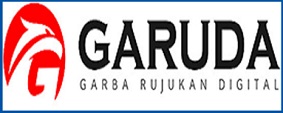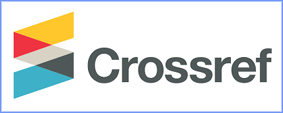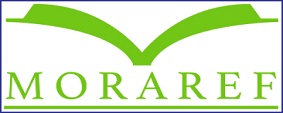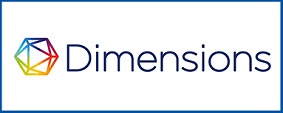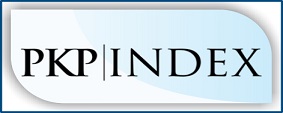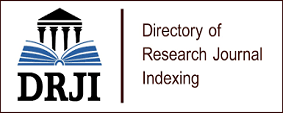Assessing Students' Creative Thinking With The Implementation of Design Thinking Based Project
DOI:
https://doi.org/10.61277/ije.v2i3.148Keywords:
Creative Thinking, Design Thinking, Food Fermentation, Microbiology, ProjectAbstract
The focus of this study is to apply design-thinking learning to measure students' creative thinking skills in microbiology courses at universities. The type of pre-experimental research with one group pretest - posttest design. Respondents were 27 student in four semester in the biology education study program, Hamzanwadi University FMIPA. Data collection techniques using Worksheets based project with indicators for design project: problem, solution, objective, and procedure. Data analysis techniques are descriptive quantitative by calculating the gain test of creative thinking skills, the percentage of creative thinking ability categories, and the percentage of fermentation product categories. The creative thinking gain score on the components: posing problems 1.09., proposing solutions 0.88., stating objectives 1.07., and compiling work methods 1.65 with a high category. The percentage of product categories made is general 29.2%, and modification 0.8%, no new fermentation products are produce. Through design thinking, educators can adjust their teaching methods to meet the various learning styles of students, making materials more accessible and relative. By combining real-world problems and practical activities into learning, students are encouraged to think creatively when solving challenges related to microbiology, resulting in creativity in making fermentation products. Design thinking based project learning can measure students' creative thinking skills in microbiology courses, even though at the ideate stage they repeatedly prepare project designs during the learning process and at the prototype stage there is a failure in making fermented products
Downloads
References
Alfares, N. (2021). The effect of problem-based learning on students' problem-solving self-efficacy through blackboard system in higher education. International Journal of Education and Practice, 9(1), 185-200. DOI: 10.18488/journal.61.2021.91.185.200.
Ananda, L.R., Rahmawati, Y., & Khairi, F. (2023). Critical thinking skills of chemistry students by integrating design thinking with STEAM-PjBL. Journal of Technology and Science Education, 13(1), 352-367. DOI: https://doi.org/10.3926/jotse.1938.
Ariza, M.R., Armenteros, A.Q., & Castro, A.E. (2024). Promoting critical thinking through mathematics and science teacher education: the case of argumentation and graphs interpretation about climate change. European Journal of Teacher Education, 47(1), 41–59. DOI: https://doi.org/10.1080/0261 9768.2021.1961736.
Avcu, Y. E., & Ayverdi, L. (2022). Application of design thinking as a differentiation strategy for the education of gifted students: “City X”. Journal for the Education of Gifted Young Scientists, 10(4), 573-590. DOI: http://dx.doi.org/10.17478/jegys.1183220.
Barrett-Zahan, E. (2022). Design thinking. Science and children, 59 (3), National Science Teaching Association (NSTA). Retrieved from: https://www.nsta.org/science-and-children/science-and-children-januaryfebruary-2022/design-thinking.
Carter, A.G., Creedy, D.K., & Sidebotham, M. (2017). Critical thinking evaluation in reflective writing: development and testing of carter assessment of critical thinking in Midwifery (Reflection). Midwifery, 54, 73–80. DOI: https://doi.org/10.1016/j.midw.2017.08.003.
Chia, L.W., & Goh, C.C.M. (2016). Teachers’ perceptions, experience, and learning. Asia Pacific Journal of Education, 36(1), 1-4. DOI: https://doi.org/10.1080/02188791.2016.1141464.
Chiu, C. F. (2020). Facilitating k-12 teachers in creating apps by visual programming and project-based learning. International Journal of Emerging Technologies in Learning (iJET), 15(1), 103-118. DOI:10.3991/ijet.v15i01.11013.
Conradty, C., & Bogner, F.X. (2020). STEAM teaching professional development works: effects on students’ creativity and motivation. Smart Learning Environments, 7(26), 1-20. DOI: https://doi.org/10.1186/s40561-020-00132-9.
Corazza, G. E. (2016). Potential originality and effectiveness: the dynamic definition of creativity. Creativity Research Journal, 28(3), 258–267. DOI: https://doi.org/10.1080/10400419.2016.1195627.
Creswell, J. W., & Creswell, J. D. (2018). Research design: qualitative, quantitative, and mixed methods approaches. Sage.
Cropley,D.H. (2015). Creativity in Engineering, CA: Academic Press, San Diego.
Dam, R.F., & Siang, T.Y. (2018). Design Thinking: Getting Started with Empathy. Interaction Design Foundation. Retrieved from https://www.interaction-design.org/literature/article/design-thinking-getting-started-with-empathy.
Fatmawati, B. (2016). Project based learning to practise creativity students in designing products organic and inorganic waste through lesson study (biology course). The 7th International Conference on Lesson Study (ICLS). Learning Through Collaborative. 3-5 November 2016. Universitas Muhammadiyah Malang. No ISBN: 978-979-796--264-7. 23 – 30.
Fatmawati, B., Ariandani, N., & Sasmita, M. (2021). Student's creative thinking ability with the lesson study design in biology content. Jurnal Penelitian Pendidikan IPA, 7(2), 287-292. DOI: https://doi.org/10.29303/jppipa.v7i2.708.
Fatmawati, B., Jannah, B. M., & Sasmita, M. (2022). Students’ Creative Thinking Ability Through Creative Problem Solving based Learning. Jurnal Penelitian Pendidikan IPA, 8(4), 2384–2388. DOI: https://doi.org/10.29303/jppipa.v8i4.1846.
Fatmawati, B. (2023). Desain pembelajaran berbasis konstruktivisme dalam pembelajaran biologi. Selong: Universitas Hamzanwadi Press.
Filho, L. W., Shiel, C., & Paco, A. (2016). Implementing and operationalizing integrative approaches to sustainability in higher education: the role of project-oriented learning. Journal of Cleaner Production, 133, 126–135. DOI: https://doi.org/10.1016/j.jclepro.2016.05.079.
G. Mosely, N. Wright and C. Wrigley. (2018). Facilitating design thinking: A comparison of design expertise. Thinking Skills and Creativity, 27, 177–189. DOI: https://doi.org/10.1016/j.tsc.2018.02.004.
Gleason, N.W. (2018). Higher education in the era of the fourth industrial revolution. Springer. DOI: https://doi.org/10.1007/978-981-13-0194-0_1.
Griffith, M. & Lechuga-Jimenez, C. (2024). Design thinking in higher education case studies: disciplinary contrasts between cultural heritage and language and technology. Education Sciences, 14(1), 1-15. DOI: https://doi.org/10.3390/educsci14010090.
Guo, P., Saab, N., Post, L.S., & Admiraal, W. (2020). A review of project-based learning in higher education: Student outcomes and measures. International Journal of Educational Research, 102(2020) 101586, 1-13. DOI: https://doi.org/10.1016/j.ijer.2020.101586.
He, W., Yan, J., Wang, C., Liao, L., & Hu, X. (2023). Exploring the impact of the design-thinking model on fifth graders’ creative self-efficacy, situational interest, and individual interest in STEM education. Thinking Skills and Creativity, 50(2):101424. DOI: https://doi.org/10.1016/j.tsc.2023.101424.
Henriksen, D., Richardson, C., & Mehta, R. (2017). Design thinking: a creative approach to educational problems of practice. Thinking Skills and Creativity, 26(7): 140-153, DOI: https://doi.org/10.1016/j.tsc.2017.10.001.
Karwowski M., Lebuda I., & Beghetto R. A. (2019). Creative self-beliefs. In Kaufman J. C., Sternberg R. J. (Eds.), The Cambridge Handbook of Creativity. Cambridge University Press. DOI: https://doi.org/10.1017/9781316979839.021.
Kaya, V. H., & Elster, D. (2018). German students’ environmental literacy in science education based on PISA data. Science Education International, 29(2), 75-87. DOI: 10.33828/sei.v29.i2.2.
Kennedy, K.J., & Lee, J.C.K. (2018). Lesson study in Brunei Darussalam: changing the paradigm for teaching and learning. Routledge International Handbook of Schools and Schooling in Asia Routledge. Accessed on: 27 Oct 2023. https://www.routledgehandbooks.com/doi/10.4324/9781315694382-95.
Kivunja, C. (2015). Exploring the pedagogical meaning and implications of the 4Cs “super skills” for the 21st century through bruner’s 5E lenses of knowledge construction to improve pedagogies of the new learning paradigm. Creative Education, 6(02), 224–239. DOI: https://doi.org/10.4236/ce.2015.62021.
Kumalasari, L., Yususf, H.A., & Priyandoko, D. (2017). The application of multple intelligence approach to the learning of human circulatory system. Journal of Physics: Conf. Series, 909: 012066. DOI: 10.1088/1742-6596/909/1/012066.
Ladachart, L., Radchanet, V., & Phothong, W. (2022). Design thinking mindsets facilitating students’ learning of scientific concepts in design-based activities. Journal of Turkish Science Education, 19(1), 1-16. DOI: 10.36681/tused.2021.106.
Lee, J., Jung, Y., & Yoon, S. (2019). Fostering group creativity through design thinking projects. Knowledge Management & E-Learning, 11(3), 378–392. DOI: https://doi.org/10.34105/j.kmel.2019.11.020.
Li, T & Zhan, Z. A Systematic Review on Design Thinking Integrated Learning in K-12 Education. Appl. Sci. 2022, 12, 8077. DOI: https://doi.org/10.3390/app12168077.
Li, Y., Schoenfeld, A. H., diSessa, A. A., Graesser, A. C., Benson, L. C., English, L. D., & Duschl, R. A. (2019). Design and design thinking in STEM education. Journal of STEM Education Research, 2(2), 93-104. DOI: https://doi.org/10.1007/s41979-019-00020-z.
Liu, X., & Zhao, Y. (2021). Research on the application strategy of project-based learning teaching mode in practical teaching of product design. Advances in Social Science, Education and Humanities Research, 523, 7–12. DOI:10.2991/assehr.k.210206.002.
Loginova, P., Klakova, V., Bohemia, E., Semichevskaya, T., & Solovieva, A. (2022). Student experience of online international design studio participation. DS 117: Proceedings of the 24th International Conference on Engineering and Product Design Education (E&PDE 2022), London South Bank University, London, UK. 8–9 September 2022. DOI: https://doi.org/10.35199/epde.2022.123.
Luo, M., Wang, Z., Sun, D., Wan, H., & Zhu, L., (2020). Evaluating scientific reasoning ability: the design and validation of an assessment with a focus on reasoning and the use of evidence. Journal of Baltic Science Education, 19 (2), 261–275, DOI: 10.33225/jbse/20.19.261.
Manzakoğlu, B. T., & Oraklibel, R.D. (2021). A design management and design thinking approach for developing smart product service system design: projects from online industrial design studio. Journal of Design Studio, 3(1), 107-116. DOI: https://doi.org/10.46474/jds.933488.
Murphy, B. (2020). Transforming learning with design thinking. Connected Science Learning, 2(3). DOI: https://doi.org/10.1080/24758779.2020.12318736.
Novak, E., & Mulvey, B.K. (2021). Enhancing design thinking in instructional technology students. Journal Comput Assist Learn, 37(1), 80–90. DOI: https://doi.org/10.1111/jcal.12470.
Nurmalia., Halim, A., & Syahrun. N. (2020). Application of jigsaw type cooperative learning to improve student creative thinking skills. Journal of Physics: Conf. Series 1460 (2020) 012142, 1-5. DOI: 10.1088/1742-6596/1460/1/012142.
OECD. (2018). PISA 2015. PISA Result in Focus. Paris: PISA-OECD Publishing.
OECD. (2024), PISA 2022 Results (Volume III): Creative Minds, Creative Schools, PISA, OECD Publishing, Paris, https://doi.org/10.1787/765ee8c2-en.
O'Sullivan, C., Slocombe, A., McKenzie, C., & Salisbury, F. (2019). Digital dexterity: A sustainable model for building essential skills for the future workforce. Proceedings of the IATUL Conferences, Perth, Australia. Paper 5. https://docs.lib.purdue.edu/iatul/2019/bp/5.
Özreçberoğlu, N., & Çağanağa, Ç.K. (2018). Making it count: Strategies for improving problem-solving skills in mathematics for students and teachers’ classroom management. Eurasia Journal of Mathematics, Science and Technology Education, 14(4), 1253-1261. DOI: https://doi.org/10.29333/ejmste/82536.
Ozturk, T., & Guven, B. (2016). Evaluating Students’ Beliefs in Problem Solving Process: A Case Study. Eurasia Journal of Mathematics, Science & Technology Education, 12(2), 411-429. DOI: https://doi.org/10.12973/eurasia.2016.1208a.
Panke, S. (2019). Design thinking in education: perspectives, opportunities and challenges. Open Education Studies, 1(1), 281–306. DOI: https://doi.org/10.1515/edu-2019-0022.
Peng, F. (2022). Design thinking: from empathy to evaluation. Foundations of Robotics: A Multidisciplinary Approach with Python and ROS, 63-81. Springer. DOI: https://doi.org/10.1007/978-981-19-1983-1_3.
Polat, S., & Bayram, H. (2022). An investigation into design thinking skills of social studies teachers. Pegem Journal of Education and Instruction, 12(3), 208–219. DOI: https://doi.org/10.47750/pegegog.12.03.22.
Pratomo, L. C., Siswandari., & Wardani, D. K. (2021). The effectiveness of design thinking in improving student creativity skills and entrepreneurial alertness. International Journal of Instruction, 14(4), 695-712. DOI: https://doi.org/10.29333/iji.2021.14440a.
Razali., Halim, A., Haji, A. G & Nurfadilla, E. (2020). Effect of inquiry learning methods on generic science skills based on creativity level. Journal of Physics: Conf. Series 1460 (2020) 012118, 1-9. DOI:10.1088/1742-6596/1460/1/012118.
Ritter, S.M., & Mostert, N. (2016). Enhancement of creative thinking skills using a cognitive-based creativity training. Journal of Cognitive Enhancement, 1(3), 243–253. DOI: https://doi.org/10.1007/s41465-016-0002-3.
Runco, M.A. (2022). Positive creativity and the intentions, discretion, problem finding, and divergent thinking that support it can be encouraged in the classroom. Education Science, 12(5), 1-13. DOI: https://doi.org/10.3390/educsci12050340.
Saad, A., & Zainudin, S. (2022). A review of project-based learning (PBL) and computational thinking (CT) in teaching and learning. Learning and Motivation, 78(12). DOI: 10.1016/j.lmot.2022.101802.
Sadiku, M.N.O., Omotoso, A.A., & Musa, S.M. (2019). Design thinking. International Journal of Trend in Scientific Research and Development, 3(3), 1788-1789. DOI: https://doi.org/10.31142/ijtsrd23463.
Samaniego, M., Usca, N., Salguero, J., & Quevedo, W. (2024). Creative thinking in art and design education: a systematic review. Education Sciences, 14(2), 192. DOI: https://doi.org/10.3390/educsci14020192.
Sandhyavi, D.K.V., & Lalitha, D.N. (2020). Design thinking for management education. International Journal of Recent Technology and Engineering (IJRTE), 8(5), 639-649. DOI: https://doi.org/10.35940/ijrte.e5863.018520.
Sandika, B., & Fitrihidajati, H. (2018). Improving creative thinking skills and scientific attitude through inquiry-based learning in basic biology lecture toward students of biology education. Jurnal Pendidikan Biologi Indonesia, 4(1), 23-28. DOI: https://doi.org/10.22219/jpbi.v4i1.5326.
Savinem, A., & Scott, P. (2002). The force concept inventory: A tool for monitoring student learning. Physics Education, 37(1), 45–52. DOI: https://doi.org/10.1088/0031-9120/37/1/306.
Seifried, J., & Wasserbaech, C.S. (2019). Design thinking in leading European companies—organizational and spatial issues. Journal of Innovation Management, 7(1), 80-107.DOI: https://doi.org/10.24840/2183-0606_007.001_0006.
Şenyiğit, Ç. (2021). The effect of problem-based learning on pre-service primary school teachers' conceptual understanding and misconceptions. International Online Journal of Primary Education (IOJPE), 10(1), 50-72. DOI: https://orcid.org/0000-0003-4549-6989.
Spector, B. S., Lake, J., Basham, A., & Leard, C. (2020). Service learning: A vehicle for inquiry teach¬ing and learning. Journal of Service-Learning in Higher Education, 10(2020), 1 - 2. Retrieved from: https://eric.ed.gov/?id=EJ1242890.
Steffen, T., Fly, A., & Stobart, R., (2022). Project-based learning for control of hybrid powertrains using a simulation model. IFAC Papers On Line, 55(17), 25-30. DOI: https://doi.org/10.1016/j.ifacol.2022.09.220Get rights and content.
Šuligoj, V., Žavbi, R., & Avsec, S. (2020). Interdisciplinary critical and design thinking. International Journal of Engineering Education, 36 (1A), 84-95.
Sung, E. & Kelly, T. R. (2019). Identifying design process patterns: a sequential analysis study of design thinking. International Journal of Technology and Design Education, 29(2), 283-302. DOI: https://doi.org/10.1007/s10798-018-9448-1.
Susilawati, E., Lubis, H., Kesuma, S., & Pratama, I. (2022). Antecedents of student character in higher education: the role of the automated short essay scoring (ASES) digital technology-based assessment model. Eurasia Journal of Educational Research, 98 (98), 203–220. DOI: 10.14689/ejer.2022.98.013.
Thomas, J.A., & Strunk, K.K. (2017). Expectancy-value and children's science achievement: parents matter. Journal of Research in Science Teaching, 54(6), 693-712. DOI: 10.1002/tea.21382.
Tsalapatas, H., Heidmann, O., Pata, K., De Carvalho, C.V., Bauters, M., Papadopoulos, S., Katsimendes, C., Taka, C., & Houstis, E. (2019). Teaching Design Thinking through Gamified Learning. In CSEDU 2019—Proceedings of the 11th International Conference on Computer Supported Education, 278-283, Science and Technology Publications.
Usmeldi & Amini, R. (2022). Creative project-based learning model to increase creativity of vocational high school students. International Journal of Evaluation and Research in Education (IJERE), 11(4), 2155-2164. DOI: 10.11591/ijere.v11i4.21214.
Varianytsia, L., Olha, K., Iryna, P., Oksana, H., & Olena, K. (2022). Design thinking as an innovative method of formation of creativity skills in students of higher education. Journal of Curriculum and Teaching, 11(8), 303. DOI: https://doi.org/10.5430/jct.v11n8p303.
Veerasinghan, K., Balakrishnan, B., Damanhuri, M.I., & Gengatharan, K. (2021). Design Thinking for Creative Teaching of Chemistry. The International Journal of Academic Research in Business and Social Sciences, 11, 670-687.
Verganti, R., Dell’Era, C., & Swan, K. (2021). Design thinking: critical analysis and future evolution. Journal of Product Innovation Management, 38(6), 603-622. DOI: https://doi.org/10.1111/jpim.12610.
Vogler, J.S., Thompson, P., Davis, D.W., Mayfield, B.E., Finley, P.M., & Yasseri, D. (2018). The hard work of soft skills: augmenting the project-based learning experience with interdisciplinary teamwork. Instructional Science, 46(3), 457-488. DOI: https://doi.org/10.1007/s11251-017-9438-9.
Wahyu, Y., Suastra, I.W., Sadia, I.W., & Suarni, N.K. (2020). The effectiveness of mobile augmented reality assisted stem-based learning on scientific literacy and students’ achievement. International Journal of Instruction, 13(3), 343-356. DOI: https://doi.org/10.29333/iji.2020.13324a.
Wati, S., Halim, A., & Mustafa. (2020). The impact of the media tracker on student critical thinking skills. Journal of Physics: Conf. Series, 1460(2020) 012139. 1-7. DOI: 10.1088/1742-6596/1460/1/012139.
Weiss, C. (2023). Using design thinking to transform classroom projects. INTED 2023 Proceedings, 2050-2059. DOI: 10.21125/inted.2023.0569.
Widiawati, L., Joyoatmojo, S., & Sudiyanto. (2018). Higher order thinking skills as effect of problem based learning in the 21st century learning. International Journal of Multicultural and Multireligious Understanding, 5(3), 96-105.
Xing, Z. & Chen, Z. (2022). A project-based approach for learning blockchain technology. Procedia Computer Science, 214(2022), 581–589. DOI: 10.1016/j.procs.2022.11.215.
Yang, X., Zhang, M., Zhao, Y., Wang, Q., & Hong, J-C. (2022). Relationship between creative thinking and experimental design thinking in science education: Independent or related. Thinking Skills and Creativity, 46(10): 101183. DOI: https://doi.org/10.1016/j.tsc.2022.101183.
Zhu, L., Sun, D., Luo, M. Liu, W., Xue, S. (2024). Investigating Pre-Service Science Teachers’ Design Performance in Laboratory Class: The Inquiry-Based Design Thinking Approach. Journal Science Education Technology, 33, 30–44. DOI: https://doi.org/10.1007/s10956-023-10050-3.
Zulyusri, Z., Santosa, T.A., Festiyed, F., Yerimadesi, Y., Yohandri, Y., Razak, A., & Sofianora, A. (2023). Effectiveness of STEM learning based on design thinking in improving critical thinking skills in science learning: a meta-analysis. Jurnal Penelitian Pendidikan IPA, 9(6), 112–119. DOI: https://doi.org/10.29303/jppipa.v9i6.3709.








